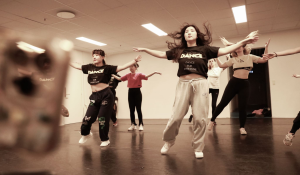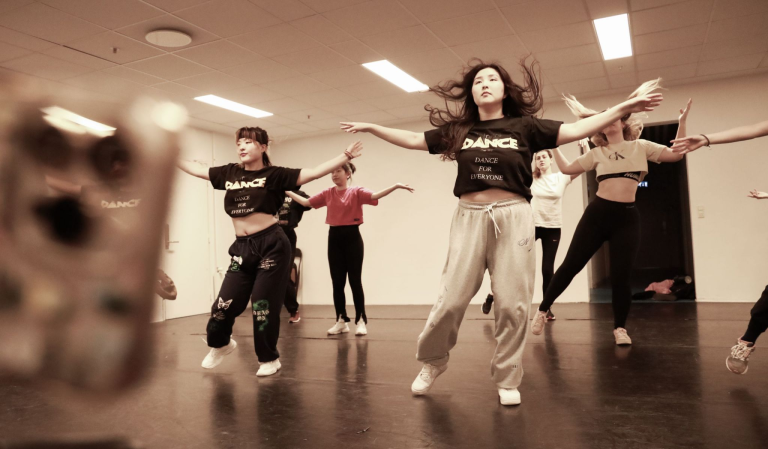Black Lives Matter in Switzerland signifies a growing movement that reflects the deep-seated issues surrounding race and identity in this picturesque nation. As conversations about anti-Blackness emerge, they challenge the status quo, prompting a re-examination of Black culture within Swiss society. Notably, academics like Jessie Cox are championing these discussions, particularly in his influential work “Sounds of Black Switzerland,” which explores the convergence of music and race. This book not only highlights the contributions of artists in the Swiss music scene but also delves into Afrofuturism and Black studies, shedding light on the nuances of Black existence in a country where these dialogues have historically been sidelined. By addressing these themes, Cox and others aim to foster a greater understanding of Black lives and encourage a more inclusive narrative in Switzerland.
The importance of recognizing the Black experience in Switzerland transcends mere acknowledgment; it calls for a celebration of the diverse narratives that compose the nation’s fabric. Through various expressions of creativity in the Swiss arts, the conversation around race has gained momentum, inspiring new generations to engage with Black identities. The exploration of themes such as anti-Black sentiment and the impact of Afrofuturism not only enriches Black studies but also enhances the broader understanding of multiculturalism in Switzerland. By examining music, literature, and social justice, artists and scholars alike are paving the way for a future where discussions around race are no longer taboo. Thus, cultivating a discourse that elevates Black voices is crucial for fostering unity and progress in Swiss society.
The Significance of Black Lives Matter in Switzerland
The Black Lives Matter movement has reverberated globally, reaching even the serene landscapes of Switzerland. In contrast to the dominant narratives often found in larger nations, discussing the significance of Black lives in Switzerland requires a thoughtful approach. Jessie Cox, through his work ‘Sounds of Black Switzerland,’ seeks to amplify this discourse, showing that the struggles and triumphs of Black individuals are indeed significant, even in a country that is often perceived as homogeneous. The need to recognize and celebrate Black culture is paramount, pushing against the tides of anti-Blackness that may pervade public consciousness.
Furthermore, Cox’s insights highlight the often-overlooked intersections between Swiss national identity and Blackness. As he explores the cultural and artistic contributions of Black individuals within the Swiss music scene, it unearths a layered narrative that counters longstanding perceptions of silence surrounding race. The dialogue surrounding Black Lives Matter is essential not just in acknowledging past injustices, but in actively fostering a future where Black voices are celebrated and integrated into the broader societal fabric of Switzerland.
Frequently Asked Questions
How does the Black Lives Matter movement relate to Black culture in Switzerland?
The Black Lives Matter movement emphasizes the importance of acknowledging Black culture in all global contexts, including Switzerland. In his book “Sounds of Black Switzerland,” Jessie Cox highlights how Black culture is often overlooked in Swiss discourse, advocating for greater recognition and representation of Black lives and histories within the nation.
What role does Afrofuturism play in discussions about Black lives in Switzerland?
Afrofuturism serves as a creative framework within Jessie Cox’s exploration of Black lives in Switzerland, providing imaginative possibilities that challenge traditional narratives. His research discusses how Afrofuturism can inspire new perspectives on Blackness, encouraging dialogue about identity and representation in a largely color-blind cultural landscape.
How does anti-Blackness manifest in Switzerland, according to recent studies?
Recent studies, including those presented in Jessie Cox’s work, indicate that anti-Blackness in Switzerland often appears as systemic invisibility and color-blindness. This erasure maintains the status quo and obstructs meaningful conversations about race and Black lives, emphasizing the need for continued advocacy and awareness in Swiss society.
What contributions do Black studies make to understanding race in Switzerland?
Black studies provide essential insights into the complexities of race, challenging misrepresentations and fostering a broader understanding of Black experiences in Switzerland. Jessie Cox’s book aims to bridge the gap in Black studies by focusing on underrepresented voices and cultural practices, thereby enriching the discourse around Black lives.
In what ways is the Swiss music scene reflecting issues surrounding Black lives?
The Swiss music scene, as highlighted by Jessie Cox, reflects issues surrounding Black lives through artists who engage with themes of racial identity and social change. For instance, the rapper Nativ utilizes his platform to advocate for transformation, embedding crucial messages within his music that resonates with the Black experience in Switzerland.
How can artistic practices contribute to the Black Lives Matter movement in Switzerland?
Artistic practices offer radical possibilities for reimagining social realities and fostering solidarity within the Black Lives Matter movement. Jessie Cox argues that through innovative artistic expressions, communities can explore new relationships and commonalities that transcend divisions, making art a vital tool for change in Switzerland.
What impact does Jessie Cox’s work have on the discussion of Black lives in Switzerland?
Jessie Cox’s work significantly impacts the discussion of Black lives in Switzerland by bringing attention to overlooked narratives and pushing for a more inclusive understanding of race. His interdisciplinary approach combines music criticism with cultural analysis, fostering dialogue that is essential for acknowledging and uplifting Black experiences in the Swiss context.
| Key Points | Details |
|---|---|
| Growing up in Switzerland, Jessie Cox felt Black lives were often unacknowledged. | Cox is now a music professor at Harvard and addresses race dynamics in his book, ‘Sounds of Black Switzerland’. |
| The book opens a discourse on Black Switzerland and contributes to Black studies. | Includes themes of Blackness, Afrofuturism, and experiences of anti-Blackness in Switzerland. |
| Cox discusses Black experiences and challenges including Switzerland’s immigration laws. | He aims to move beyond narratives of violence to explore the possibilities within Black life. |
| Inspired by Swiss-Nigerian composer Charles Uzor, and references George Floyd’s case. | Highlights the need for radical change and connection through artistic practice. |
Summary
Black Lives Matter in Switzerland is an essential conversation that highlights the challenges and realities faced by the Black community in a country where race is often overlooked. Through his significant work, ‘Sounds of Black Switzerland’, Jessie Cox not only addresses these realities but also seeks to foster a dialogue about Black identity and creativity. By advocating for a broader understanding of Black experiences in Switzerland, he paves the way for a more inclusive cultural discourse. His efforts encourage reflection on the vital intersection of music, identity, and social justice, ultimately aiming to inspire change and a deeper acknowledgment of the richness of Black lives.









